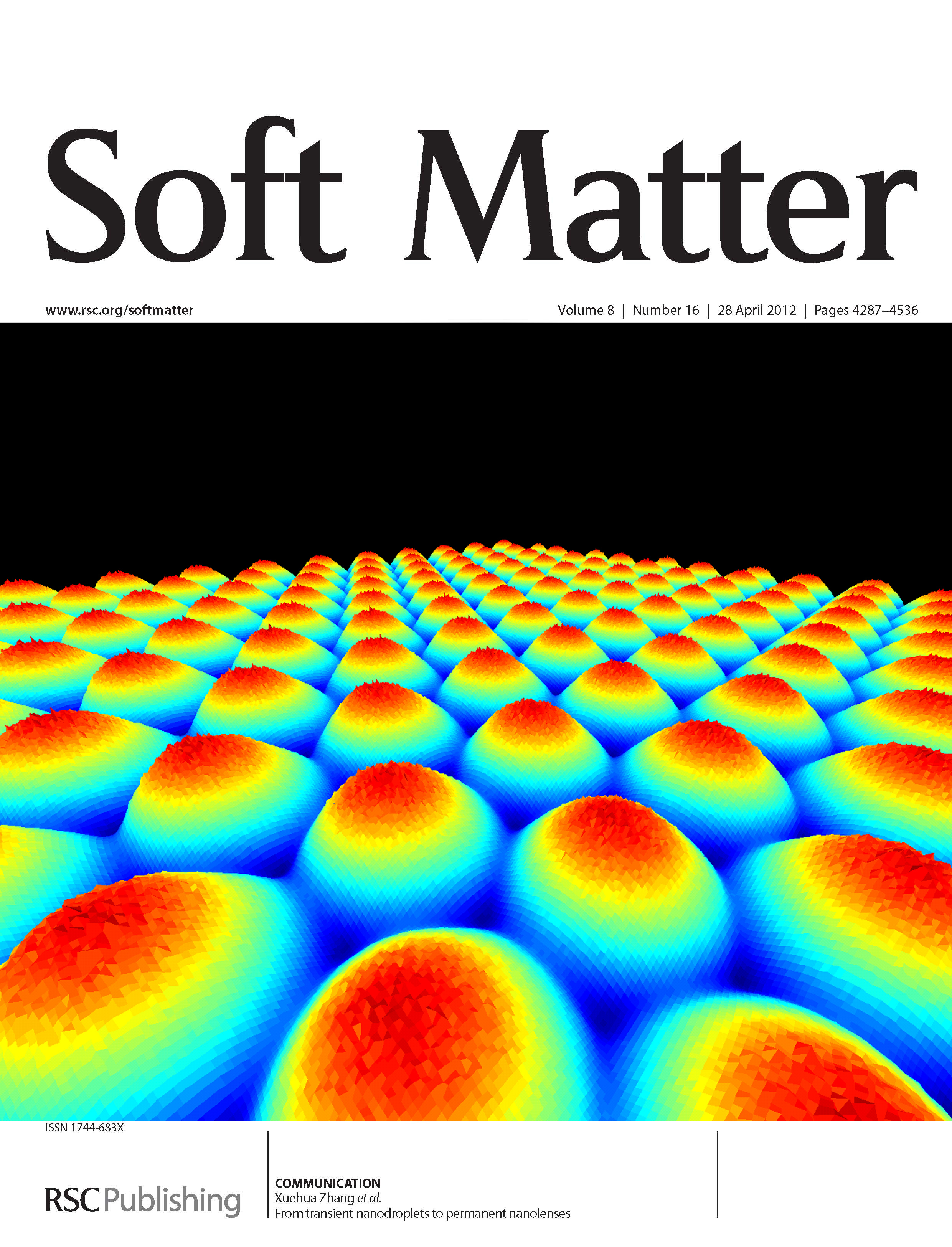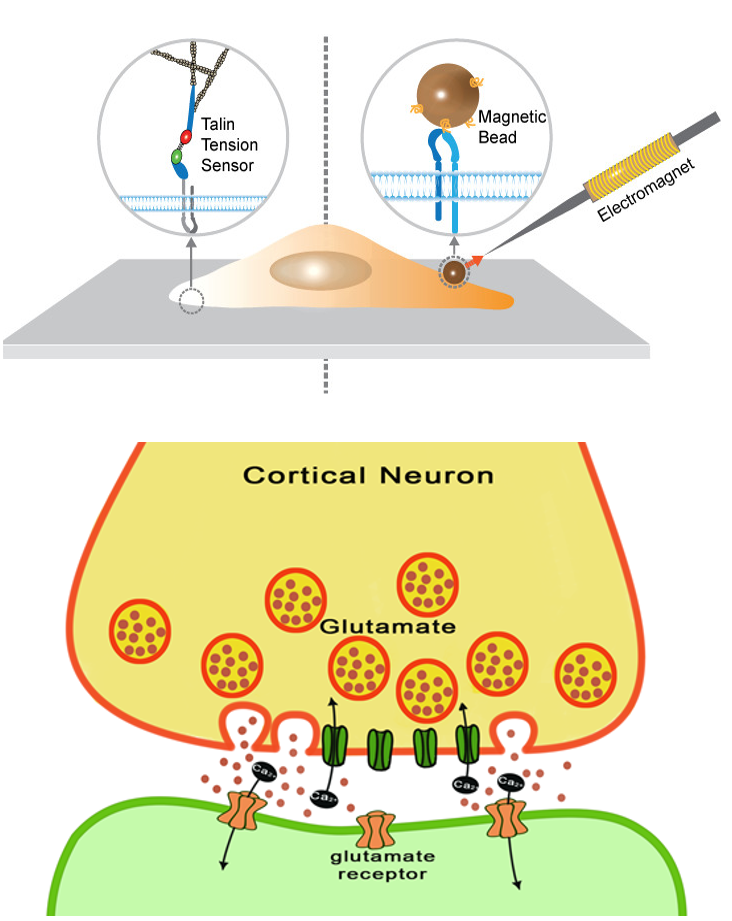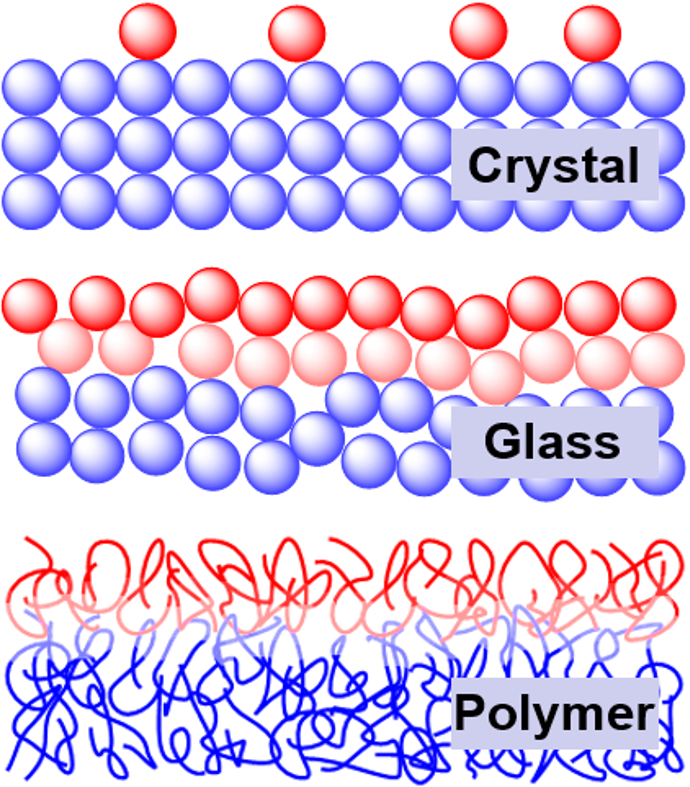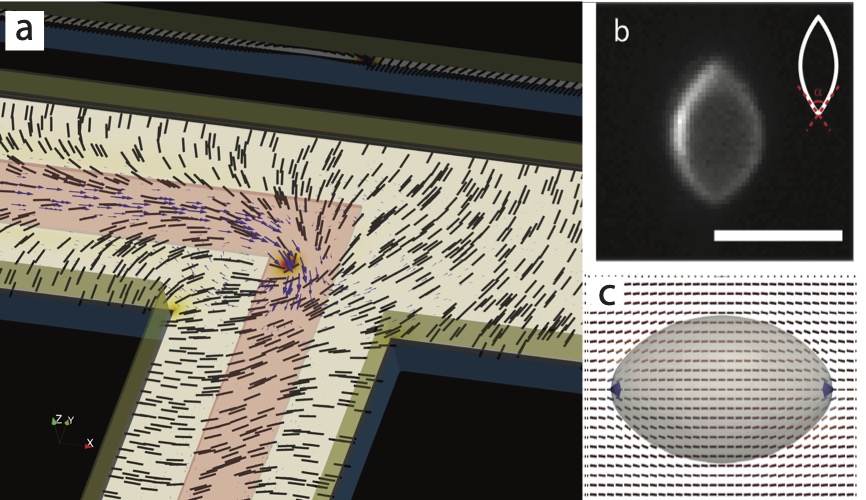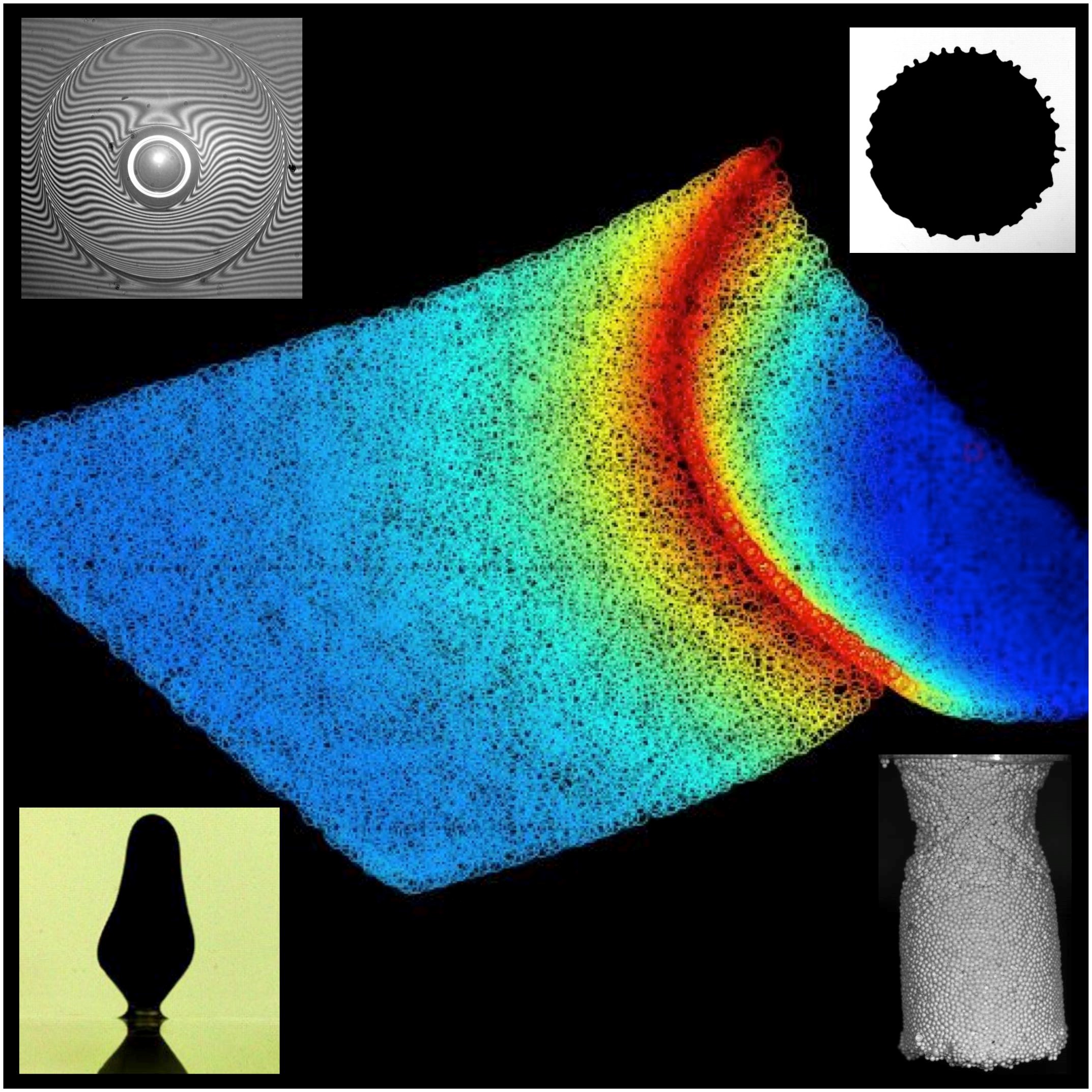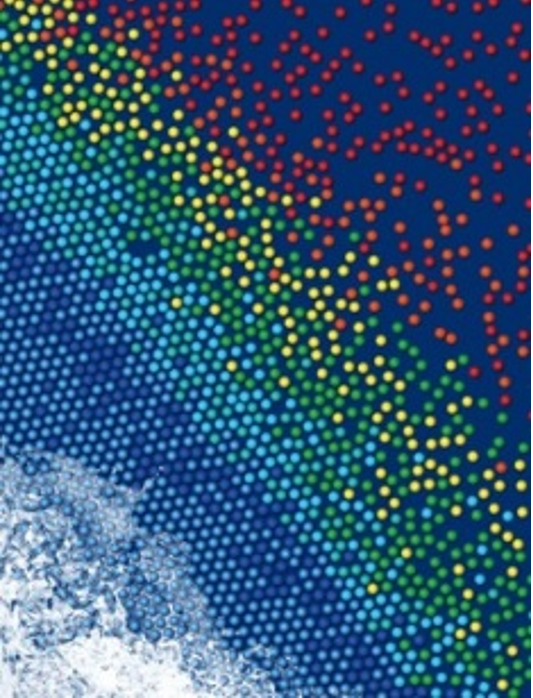Soft condensed matter and biological physics study mechanically soft systems, including liquids, colloids, polymers, foams, granular materials, liquid crystals, and biological systems ranging from biological molecules to entire organisms or ecosystems. These systems share common characteristics, where thermal fluctuations and entropy effects are significant, while quantum effects are negligible. These unique features give rise to a wide array of interesting microstructures, dynamics, and phase behaviors in soft and biological materials. Soft matter and biological physics are relatively new fields within physics, characterized by their interdisciplinary nature. They often involve collaboration with one or more fields, including chemistry, biology, materials science, chemical engineering, and mechanical engineering.
Currently, six research groups in the Physics Department are engaged in this area, exploring a diverse range of soft matter systems, such as colloids, polymers, active matter, liquid crystals, simple and complex fluids and their surfaces, granular materials, neurons, synaptic vesicles, and motor proteins. For more details, please click on the links below to visit individual group webpages.
Related Information
